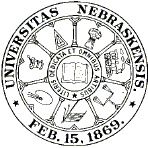
University Studies (University of Nebraska) (1888–1984)
Date of this Version
4-1965
Citation
University of Nebraska Studies: New Series no. 31
Abstract
The French chemist Marcelin Berthelot won great recognition during his lifetime, but since his death in 1907 he has become little more than a name for the world at large. He was a representative man-representing his time so completely that there remained little for the future to exploit. A man whose manifold accomplishments were so appropriate to the stage then reached by scientific development that nothing was left over-no loose ends, no undigested ideas, no potentialities unrealized. After Claude Bernard and Louis Pasteur, no scientist in France could challenge his eminence until the turn of the century, when other leading figures emerged, Poincare, Becquerel, the Curies, clearly marking the end of a period that could be called the period of Berthelot. His lifespan extended into the new century and he lived through most of those relatively peaceful years preceding the First World War. Thus in his optimism of progress through science, he was spared the blow of this cataclysm. His adversaries could have found material here for a shattering refutation of his creed.
For it is as a leading and sometimes vulnerable exemplar of "scientism" that, outside of chemistry, he is chiefly remembered. Yet while he lived how many reasons there were to expect that his fame would prove lasting! The outstanding figure of organic chemistry, the learned historian of alchemy, the prominent statesman, the intellectual partner of Ernest Renan-what more did one need to guarantee a place in history? But the author of several weighty treatises and nearly a thousand research articles was later to be called a brake on scientific progress. The estimable Minister of Education afterwards was an ineffective Minister of Foreign Affairs. The monuments erected by the historian of chemistry have lost some of their authority and much of their grandeur. The principal spokesman for science was almost laughed out of court for one careless remark, culled by people who read no further from the Preface of his Origines de l'alchimie: "Le monde est aujourd'hui sans mystere." l This was in the 1890's, when the cry "bankruptcy of science" was resounding through the land. Nevertheless his prestige remained great. He was Perpetual Secretary of the Academy of Science_ He entered the French Academy in 1901. (Some thought he had been there all the time.) Upon his death his body joined those of so many illustrious Frenchmen in the Pantheon. An American writer in 1904 had called him "the greatest experimental genius since Faraday."
It is significant that he was proposed for the Nobel Prize in chemistry repeatedly, yet was never chosen.3 It is also significant that Charles Richet's call, in 1927, for a biography on the scale of ValleryRadot's Pasteur was doomed to go unanswered. He made the suggestion in his preface to Emile Perrin's brochure marking the Berthelot centenary.4 Certainly the somewhat longer study by Augustin Boutaric, of the same year, was no answer to Richet's appea1.5 It cannot be expected that there will ever be a Vallery-Radot to recount Berthelot's life. It was too undramatic and even-flowing to attract such a biographer. Historians of science will undoubtedly one day provide that full and critical treatment of his scientific career which his many achievements deserve. In the meantime, there is something to be learned from a review of his many-sided role, not from the standpoint of a specialist in chemistry-which the present writer is not-but in the broader perspective of general "intellectual history" or of the history of ideas.


Comments
Published by The University at Lincoln